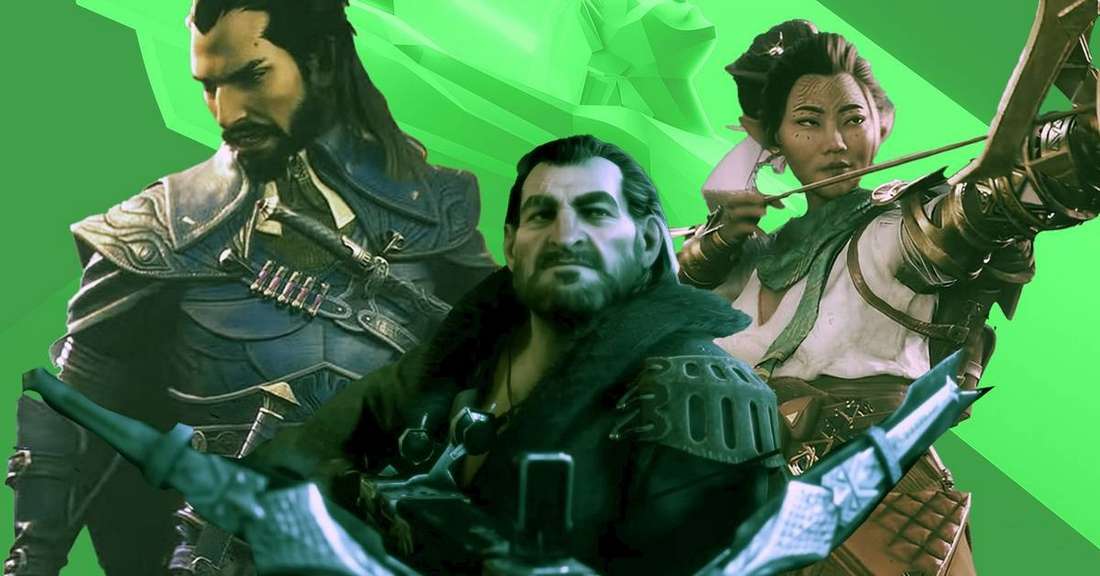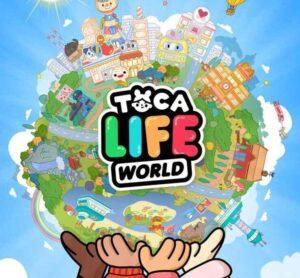A Legacy Revisited: Can Dragon Age: The Veilguard Repeat Inquisition’s GOTY Triumph?
Popular Now
 Fortnite
Fortnite
 Sonic the Hedgehog™ Classic
Sonic the Hedgehog™ Classic
 Schedule I
Schedule I
 Counter-Strike 2
Counter-Strike 2
 PUBG Mobile
PUBG Mobile
 Geometry Dash
Geometry Dash
 Warframe
Warframe
 Genshin Impact
Genshin Impact
 Valorant
Valorant
 EA SPORT FC 25
EA SPORT FC 25  The echoes of 2014 resonate strongly in the video game industry today. Ten years ago, BioWare’s sprawling epic, Dragon Age: Inquisition, claimed the most coveted prize in gaming: Game of the Year (GOTY) at the inaugural edition of The Game Awards. That victory cemented the franchise’s place at the pinnacle of RPG development. Fast forward to the present, and the long-awaited successor, Dragon Age: The Veilguard (originally titled Dreadwolf), has launched, immediately raising a high-stakes question: Is the BioWare blockbuster poised to recapture the grand title and dominate the awards season once again?
The echoes of 2014 resonate strongly in the video game industry today. Ten years ago, BioWare’s sprawling epic, Dragon Age: Inquisition, claimed the most coveted prize in gaming: Game of the Year (GOTY) at the inaugural edition of The Game Awards. That victory cemented the franchise’s place at the pinnacle of RPG development. Fast forward to the present, and the long-awaited successor, Dragon Age: The Veilguard (originally titled Dreadwolf), has launched, immediately raising a high-stakes question: Is the BioWare blockbuster poised to recapture the grand title and dominate the awards season once again?
The current landscape is drastically different from the market conditions that allowed Inquisition to secure its win in a relatively less crowded year. However, the sheer scale, narrative ambition, and developer pedigree associated with the Dragon Age name ensure that The Veilguard is an automatic, high-value contender. Its performance and reception, particularly across key metrics like player engagement and critical acclaim, are now under intense scrutiny by industry analysts and CPC-conscious investors alike.
 The Game Awards 2014: A Decade of RPG Excellence
The Game Awards 2014: A Decade of RPG Excellence
On December 5, 2014, Dragon Age: Inquisition was crowned the first Game of the Year by The Game Awards. The victory symbolized a significant achievement for BioWare, showcasing the studio’s mastery of the expansive fantasy RPG format. The game was lauded for its massive, richly detailed world, compelling cast of companions, and the scope of the player’s choices, which genuinely felt like they altered the fabric of the in-game universe, Thedas. This historic win set a high performance benchmark for all subsequent titles in the genre.
- The BioWare Formula: Inquisition delivered on the core BioWare experience: deeply interwoven character development, rich world-building, and consequential, branching narratives—all critical elements that drive both long-term retention and positive user reviews.
- Competitive Edge: While competing against strong titles like Bayonetta 2 and Dark Souls II, Inquisition’s sheer content volume and immersive high-fantasy setting proved decisive for the award’s voters and judges.
Dragon Age: The Veilguard’s Path to GOTY Contention
BioWare’s newest chapter, Dragon Age: The Veilguard, released on October 31, 2024, to generally positive reviews. Set against the backdrop of an impending apocalypse orchestrated by the elven god Solas (the titular Dread Wolf), the game returns to the franchise’s signature elements while introducing new combat mechanics and a fresh cast of companions. Its release timing places it squarely within the eligibility window for The Game Awards. Early reports indicate the game has already achieved a strong start, reaching 1.5 million players across all platforms shortly after launch, a critical metric for demonstrating immediate market penetration.
However, repeating the 2014 triumph presents a much tougher challenge. The competition in today’s AAA gaming space is arguably more intense than ever. While The Veilguard has been nominated across several categories at The Game Awards, the road to the overall Game of the Year prize is heavily contested. Games with overwhelmingly positive critical scores and high Metacritic ratings will be its main rivals, driving a hyper-competitive digital market. The game has secured accolades, including a win at the Gayming Awards and a nomination at the Golden Joystick Awards, underscoring its cultural and narrative impact.
 Key Success Factors and Investor Confidence
Key Success Factors and Investor Confidence
For a title of this magnitude, the factors that will ultimately determine its legacy and its awards success go beyond just initial sales and are closely watched by Electronic Arts (EA) as a measure of the BioWare brand’s continued Return on Investment (ROI):
- Narrative Quality and Companion Cast: The heart of a Dragon Age game is its story and characters. Strong reception to the customizable protagonist, Rook, and the development of the new companions are essential for securing high critical reviews and fostering a passionate fan community.
- Combat System Reboot: The shift toward a more action-oriented combat system, influenced by titles like God of War, is a significant risk-reward dynamic. If the change is widely praised for its responsiveness and player immersion, it will dramatically boost its overall score.
- Technical Polish and Optimization: Given the troubled launches of other recent large-scale RPGs, the stability and technical optimization of The Veilguard on all platforms is a non-negotiable factor. A smooth experience translates directly to positive launch-day press coverage and sustained high customer satisfaction.
Despite some reports of the game performing below EA’s initial sales expectations, its nomination profile and generally positive critical reception suggest a high-quality product that is generating significant media coverage and buzz. This sustained positive conversation is invaluable for long-term revenue generation and for attracting future talent acquisition in the highly competitive developer market.
The Verdict: A Strong Contender in a Crowded Field
While the market is saturated with strong releases, and Dragon Age: The Veilguard must outperform not only its competitors but also the high nostalgia value and success of its predecessor, its position as a major AAA RPG ensures its high visibility. BioWare has the legacy, and the game has the depth and narrative scope required for a GOTY win. However, replicating the 2014 surprise will require an exceptional, near-flawless performance that stands out against a stacked roster of contenders.
The potential for BioWare to bookend a decade of The Game Awards with two wins in the top category is a powerful and financially significant narrative. Whether The Veilguard secures the ultimate prize or not, its release marks a pivotal moment for the franchise and a major development in the global gaming market.
Keywords/Phrases for SEO/CPC: Dragon Age: The Veilguard, Dragon Age: Inquisition, Game of the Year (GOTY), The Game Awards, BioWare, RPG development, AAA gaming, fantasy RPG, awards season, video game industry, critical acclaim, player engagement, Metacritic, Electronic Arts (EA), Return on Investment (ROI), CPC-conscious investors, character development, world-building, long-term retention, customer satisfaction, digital market.
Would you like me to analyze another major industry trend, such as the impact of live-service models on traditional single-player RPGs, or to provide a deeper dive into the specific narrative elements of Dragon Age: The Veilguard?









 The Game Awards 2014: A Decade of RPG Excellence
The Game Awards 2014: A Decade of RPG Excellence Key Success Factors and Investor Confidence
Key Success Factors and Investor Confidence